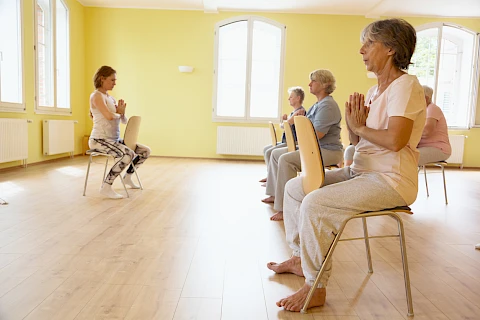
Are you looking after someone with Parkinson's disease? Incorporating regular exercise into daily routines can help manage symptoms and improve overall well-being. As a caregiver, you play a vital role in facilitating these exercise routines, ensuring your loved one maintains an active and healthy lifestyle.
Consulting Healthcare Providers
Before guiding a senior with Parkinson's into new exercise routines, consult their healthcare providers for professional recommendations. Each person's needs and abilities differ, so it's necessary to have a personalized exercise plan. Engage with doctors or physical therapists who can offer expert advice and tailor exercises to suit individual conditions. Ensuring medical guidance can help in safely incorporating exercises without overexerting or causing harm.
The Benefits of Staying Active
Exercise offers many benefits for people living with Parkinson's. It can:
- Improve balance and coordination, reducing the risk of falls.
- Enhance flexibility and range of motion, making daily tasks easier.
- Increase strength and endurance, supporting overall mobility.
- Boost mental health and mood, helping to manage feelings of depression and anxiety often associated with Parkinson's.
Balance-Enhancing Exercises
Balance exercises are a must for stability. Simple activities can make a significant difference. Tai Chi movements are known for improving balance and preventing falls, involving slow, controlled movements. Another effective exercise is standing on one foot while holding onto a sturdy chair for support, trying to maintain the position for 10-15 seconds before switching to the other foot. Caregivers can assist by providing support and ensuring safety during these exercises.
Flexibility and Stretching Routines
Flexibility is key to staying mobile. Gentle stretching exercises tailored for Parkinson's can keep the body limber. Neck and shoulder stretches, such as gently tilting the chin towards the chest and rolling the shoulders backward, can help. Seated hamstring stretches, where the person sits and extends one leg out while reaching towards the toes, can maintain flexibility. These routines can make everyday activities more manageable.
Strength-Building Exercises
Strength exercises help enhance muscle strength and increase bone density. Seated leg lifts, where the person lifts each leg as high as is comfortable while sitting, can be effective. Resistance band exercises, such as bicep curls or seated rows, can also build strength. Caregivers should ensure these exercises are done safely, providing physical support as needed.
Creating a Safe Exercise Environment
Safety should always be a priority when setting up an exercise routine. Create a secure space by clearing any obstacles that might cause trips or falls. Ensure the area has adequate lighting. Encourage the use of proper footwear and supportive equipment, like a sturdy chair or exercise mat, to prevent injuries.
Encouragement and Motivation
As a caregiver, your encouragement can make a world of difference. Celebrate small achievements and set realistic goals together. Find activities your loved one enjoys and integrate those into the exercise routine for sustained interest. Your support and understanding can significantly impact their motivation and success.
Need Help With Home Exercises?
Exercise is a key component in managing Parkinson's, offering numerous benefits from improved mobility to enhanced mood. As caregivers, your role in facilitating and encouraging regular exercise routines is invaluable.
Do you need help keeping your loved one active and engaged? For specialized Parkinson's care services, contact us at Senior Helpers Tucson. Serving Green Valley, Oro Valley, Rita Ranch, Vail, and Sahuarita, we provide expert guidance and support to enhance the quality of life for those living with Parkinson's.